VIC MARKS
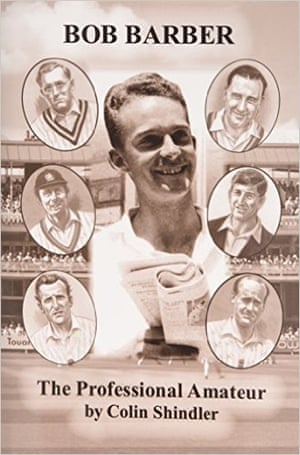
Like cricket? Possess a coffee table? Then why not place Stephen Chalke’s Summer’s Crown upon it. This is the story of the County Championship and it is the heaviest book of the year, yet it is written with a wonderfully light touch and is beautifully illustrated.
A less weighty publication, Gilbert, The Last Years of WG Grace, comes from the pen – or laptop – of Charlie Connelly. This is one of three books about Grace to be published in the year of the 100th anniversary of his death. It is brief and fictional yet may well bring us as close to an understanding of The Champion as any biography.
Bob Barber, The Professional Amateur by Colin Schindler is illuminating on the dark machinations at Old Trafford in the late 50s and early 60s. It is striking that Barber has much more time for his opening partner for England, Geoffrey Boycott, the ultimate professional, than he has for the quintessential amateurs, Ted Dexter and Colin Cowdrey.
Older readers will remember that Scyld Berry was once of this parish. Unsurprisingly, his Cricket, The Game of Life has some purple passages.
PAUL REES
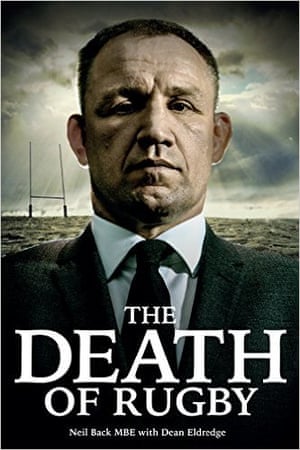
It was the year of the Rugby World Cup and books from a number of winners of the tournament. Dan Carter, New Zealand’s outside-half whose final appearance in the All Black strip was against Australia in October, published his life story, Dan Carter: The Autobiography of an All Blacks Legend, two weeks after getting his hands on the Webb Ellis Cup for the first time.
Carter the player has always been guarded in his media comments, never one for headline writers, but his autobiography is revelatory and draws out the character of a man who is expected to make his European Cup debut for Racing 92 against Northampton next Saturday.
Michael Lynagh won the World Cup with Australia in 1991. His autobiography, Blindsided, charts his career as a player and broadcaster and the battle for his life when he suffered a stroke in 2012.
A number of those involved in England’s 2003 success have brought out books this year. Neil Back’s The Death of Rugby, is typically uncompromising, Ben Cohen’s Carry Me Home wages war against bullying while the defence coach of that era, Phil Larder, charts his move from league to union in The Iron Curtain. There was no Rugby World Cup when JJ Williams played for Wales and the Lions in the 1970s. His The Life and Times of a Rugby Legend is typically candid about the days of innocence.
ANDY BULL
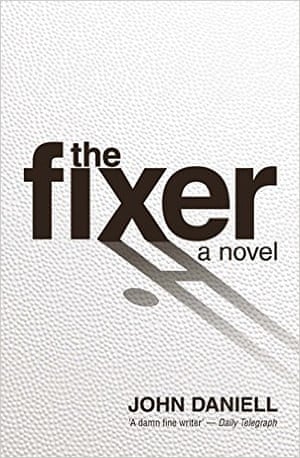
It’s been a good year for fans of cricket writing. Summer’s Crown by Stephen Chalke, Gilbert by Charlie Connolly, Fire in Babylon by Simon Lister and The Test by Simon Jones are all excellent in their own way. Seems the first two of those have already been picked by Vic Marks. So, on to the others. Fire in Babylon was inspired by the film of the same name and charts the rise of the West Indies cricket team in the 1970s and 80s. The Test tells the story of Jones’s career and stands out because of the skill of the ghostwriter, Jon Hotten.
Away from the cricket field, The Fixer by John Daniell is an entertaining novel about an All Black who gets sucked into rugby match-fixing, inspired, in part, by Daniell’s own experiences as a player. A Man’s World by Donald McRae is one of the most absorbing books of recent years, a riveting read about the double life of Emile Griffith, middleweight world champion and closet homosexual.
OWEN GIBSON
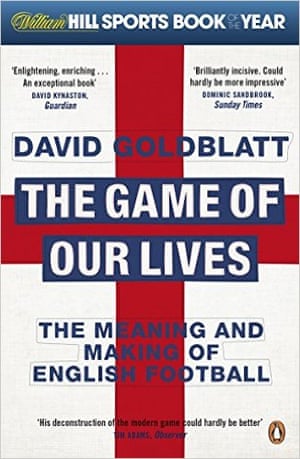
The Game of Our Lives by David Goldblatt was a deserved winner of the William Hill award, an ambitious tour de force dissembling the huge changes that have swept over British football in the post-Thatcher era. Those who have read Goldblatt’s history of the game (The Ball is Round) or his book on Brazilian football (Futebol Nation), will know to expect a combination of big ideas (national identity, big business, crowd psychology, race, community, sexism) and killer detail.
Epic in scope and serious in its intentions, yet always eminently readable, the chapter that sweeps around Britain to get under the skin of a sport that has changed beyond recognition – and in the process become more ubiquitous than ever – is almost cinematic in scope.
It is rare that a book benefits from being written in haste. Yet My Story by Steven Gerrard, is one such example where, thanks to the skill of Gerrard’s co-writer, Donald McRae, the ideas and memories tumble off the page with a freshness and immediacy that is rare in the sometimes airless world of the sporting autobiography.
Rather than taking a tedious narrative approach, the book largely picks up where Gerrard’s previous, more conventional, book left off. Contemplating life after Liverpool and England, regrets and relief pour fourth.Ultimately it is not so much the descriptions of the big moments that stay with you as the vignettes that reveal wider truths: Gerrard sitting on the sofa with a bag of Haribo sweets as he tries to recover from the trauma of The Slip, texting his physio late at night as he is wracked with pain and dark thoughts or the bittersweet abandon of dancing with his team-mates after in Dubai his final game. Highly recommended, even for non-Liverpool fans.
EWAN MURRAY
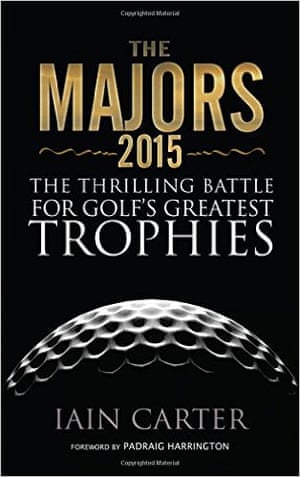
The record scoring feat achieved by Jordan Spieth at the Masters, the drama attached to the same player claiming the US Open and the uplifting narrative that encapsulated Jason Day’s triumph at the US PGA Championship render 2015 a stunning major year. For all Zach Johnson may not be the charismatic champion the Open would have preferred, the circumstances surrounding delays and a play-off at St Andrews in July were highly notable in themselves.
To recognise all of this belatedly would have been smart. BBC 5 Live’s golf correspondent, Iain Carter, does not claim the possession of a crystal ball but his foresight, a theory that 2015 in major championship golf could be worthy of deeper representation than normal, was a prescient one. The Majors 2015: The Thrilling Battle For Golf’s Greatest Trophies, charts every aspect of the big four with key information from the main protagonists. Carter was at each competition, where he catalogued the views of the contenders. Not only is this a thoroughly well researched and enjoyable book, it offers a deserved literary footprint for an epic golfing spell.
GILES RICHARDS
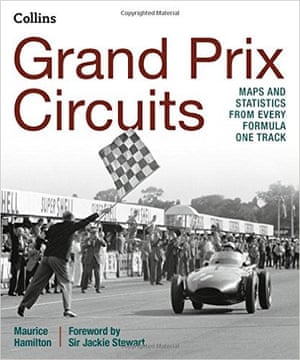
Motor racing autobiographies can tend toward being a dry old read. Drivers don’t usually make great writers and detailing the minutiae that so much of their job entails can be off-putting to readers looking for insights into the men behind the wheel. Which is why Mark Webber’s self-penned Aussie Grit: My Formula One Journey is such a pleasure. His genuine against-the-odds story of how the kid from Queanbeyan in New South Wales made it to within a whisker of becoming F1 world champion is, unsurprisingly, honest – the passage where he has to have his dog put down could not be further from F1’s duplicity and spin. Being honest is a trait Webber was well-known for in the sport, but the book is also crucially told in his own voice. The vernacular, tone and witty, brisk, straight-talking style feels as if the hugely personable Aussie was recounting it over a cold tinny. It is a cracking read and he deservedly became a world champion in the WEC this year.
All of the tracks Webber raced on are featured in veteran motor racing writer Maurice Hamilton’s Grand Prix Circuits, a beautifully collated collection of the 71 venues to have hosted an F1 race since 1950. Each features a historical description, archive photographs and glorious double-page maps. It is a chance to revel in some of the great lost circuits and the perfect guide should you choose to visit them – the twisting test of “mini-Nürburgring” Clermont-Ferrand, for example, still clings to its volcanic mountainside today. A perfect petrolhead Christmas present.
KEVIN MITCHELL
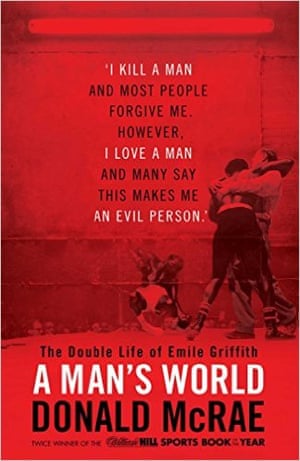
Federer and Me might have been Stan Wawrinka’s insider exclusive, full of Swiss secrets, but it is actually an outsider’s long and loving hymn of praise, William Skidelsky’s quirky homage to the player for whom he reserves nearly all his tennis affection, but whom he never gets to meet. It is slightly disturbing, this worship, but it is fascinating too, because it reflects a deeper and wider pool of adoration. Hooked: from opening lob to final shot.
Donald McRae has written for so long and so well about boxing that another gem comes as no surprise, but it is as welcome as any of the others: books or interviews. A Man’s World, the painful, engaging story of Emile Griffith and the struggle he had with his sexuality in the most macho of sporting environments is more than a boxing book, more than a sports book. It is a story of very human endeavour, about death and not a little reconciliation in the end. Wonderful.
GREG WOOD
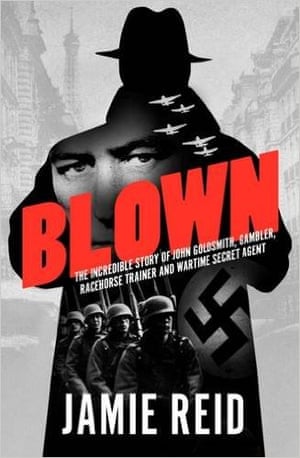
The greatest of all lifetime achievements in sport will always be a matter of opinion, but Tony McCoy’s 20 consecutive riding championships at least deserve to be mentioned alongside Don Bradman’s batting average and Jahangir Khan’s 555-match winning streak. Winner, My Racing Life is not just a very readable account of McCoy’s career, but also an honest and thoughtful attempt to address the bitter blows that are part of every great jump jockey’s profession, alongside the occasional highs that keep them going.
Not Enough Time is as much a love story as a racing memoir as Henrietta Knight recalls a 20-year romance that no one, least of all those involved, ever saw coming. Knight, a former deb with high‑society connections, was “resigned to being a spinster” until she bumped into the rough-hewn former jump jockey Terry Biddlecombe. What happened next was one of the most heart-warming racing stories of recent years, and it unfolded while the three‑times Gold Cup winner Best Mate was in her stable. Knight writes movingly about their unexpected joy together and also the emptiness and loss it left behind.
Blown: The Incredible Story of John Goldsmith, Racehorse Trainer, Gambler and Wartime Secret Agent delivers all its title promises and more. Jamie Reid has contributed to some of racing’s finest writing over the past 30 years, and his latest is a worthy successor to Doped, the 2013 William Hill Sports Book of the Year.



